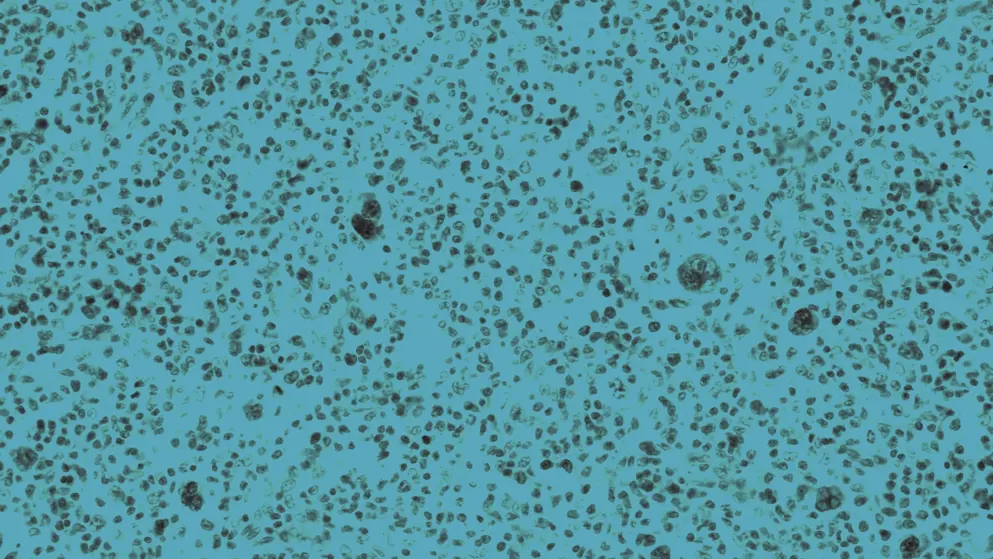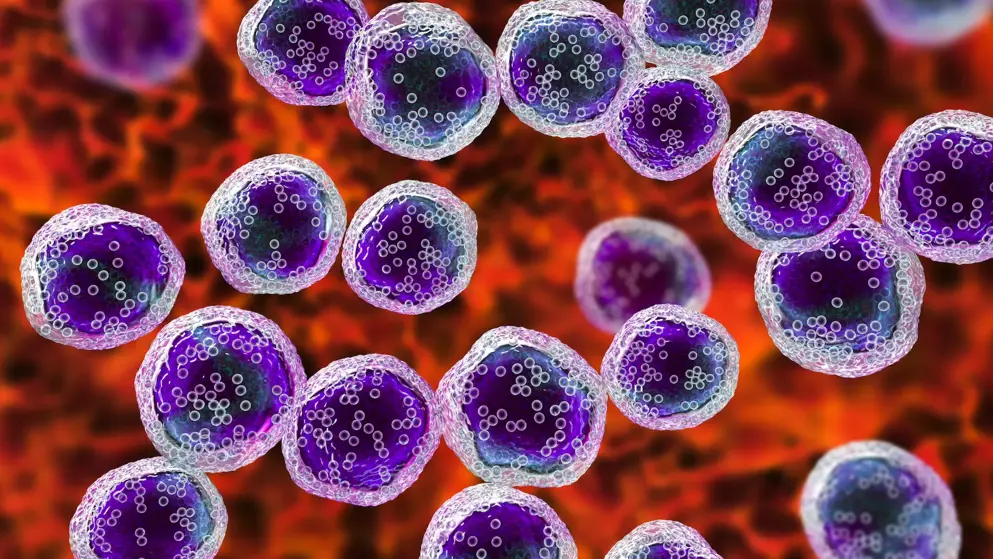
Lymphoma
Lymphoma, a hematologic malignancy originating from lymphocytes, is classified into two categories: Hodgkin lymphoma (HL), characterized by the presence of Reed–Sternberg cells, and non-Hodgkin lymphoma (NHL). NHL accounts for 90% of cases, with tens of thousands diagnosed annually in the USA.
HL comprises classical Hodgkin lymphoma (cHL), which makes up 95% of cases, and nodular lymphocyte-predominant Hodgkin lymphoma (NLP-HL). NHL has over 60 subtypes, including diffuse large B-cell lymphoma (DLBCL), follicular lymphoma, and mantle cell lymphoma.
What clinical features are typical of lymphoma?
Typical clinical features include painless lymphadenopathy, systemic “B symptoms” (fever, night sweats, weight loss), fatigue, pruritus, and extranodal symptoms that vary by site, such as abdominal pain.
How does age at presentation differ for NHL and HL?
NHL primarily presents in older adults, with incidence rising from age 45 and peaking between ages 55–59 and 80 and older. By contrast, HL exhibits a bimodal pattern, with cases most common in adults aged 20–40 and a secondary peak after age 55.
What is the pathophysiology underlying lymphoma progression?
Lymphoma progression involves genetic mutations, translocations, and dysregulated signaling pathways, such as NF-κB and JAK/STAT. These disruptions affect cell cycle control, promoting survival, immune evasion, and tumor growth, and are often influenced by oncogenic viruses like Epstein–Barr.
What methods are used to diagnose and stage lymphoma?
Diagnosis involves morphological analysis, immunophenotyping, and genetic analysis of a lymph node biopsy. Staging uses PET–CT or CT imaging alongside the Ann Arbor classification. Blood tests and bone marrow biopsies assess spread and organ function.
How are treatment advances improving lymphoma outcomes?
Chimeric antigen receptor (CAR) T-cell therapy, targeted drugs, and optimized chemotherapy regimens are enhancing survival rates and quality of life, particularly in relapsed or refractory cases.
Developed by EPG Health for Medthority, independently of any sponsor.
of interest
are looking at
saved
next event


